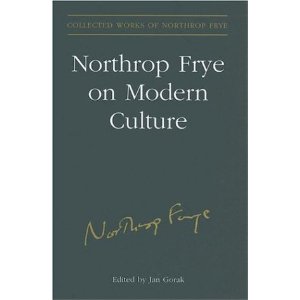
Our coverage of recent events invites a consideration of Frye’s observations on democracy. Not surprisingly, he has much to say: putting together a compilation involves 23 of the 29 volumes of the Collected Works, so it will take a while. Until it is completed, however, we’ll put up a quote a day. Our first is his editorial, “The Idea of Democracy,” published on February 7, 1950, in The Varsity.
All governments whatever must be either the expression of the will of a minority holding autonomous power, which is able to impose that will on society as a whole, or the expression of the will of the people as a whole to govern themselves. In the former case there is an antithesis between a ruling class and the ruled classes; in the latter case there is no governing class, but only a group of executives and public servants responsible to society as a whole for what they do. The latter conception of government is the democratic one.
Democracy is thus essentially the attempt to preserve law and order in society which has superseded the primitive and outmoded idea of “rule.” A monarchy may be democratic, as in Great Britain, but only if the king is conceived of reigning rather than ruling. But the cardinal democratic principle of limiting autonomous power applies to the majority as well. Unanimity being unobtainable in human society, the deciding force of democratic political action is normally the will of the majority; but democracy is very far from being merely an expression of the will of the people. The unconditioned will even of a majority could bring about as great a tyranny as the unconditioned will of a single ruler. The energy and dynamic of a democracy derive from majority rule; its balancing and preserving principle is minority right.
In other words, the expression of popular will will bring freedom only insofar as it is an informed will directed toward a desirable end. The conception of what the desirable end is must be built up from a conflicting body of minority opinions. A democracy must, therefore, adopt the principle of toleration toward a variety in opinion and an inductive and empiric attitude to opinion in general. All kinds of religious views, of political programs, of scientific and philosophical conceptions, must be given free play. The limiting principle of such tolerations is that all opinions should be as far as possible be publicized, that is, submitted to the people as a whole. The publicizing of various opinions is democratic education in the broadest sense, the informing of the popular will by the individuals or minorities who have something to contribute to it. To use Toynbee’s language for a different purpose, in a democracy all minorities must be creative minorities, never dominant ones.
Antidemocratic social action, of the kind intolerable to a democracy, must necessarily be in the direction of withdrawing information and action from the community as a whole. It is a contradiction in terms for a democracy to tolerate a conspiratorial coup d’etat aimed at the restoration of the old idea of a professional ruling class.
Democracy being a political theory only, it needs an economic structure to complete itself. Originally, this economic structure was laissez-faire capitalism, which aided the growth of democracy by playing a revolutionary role against the old hereditary concentrations of power and privilege which had come down from feudal times. By now laissez-faire is in considerable danger of developing into an oligarchic dictatorship or managerial system, and revolutionary democratic action now takes the form of using the democratic machinery of government, the Parliament, the civil service, and the cabinet, to control the productive industrial economy to the point of making its actions known to the people as whole and responsible to them. Along with this has grown what is coming to be known as the “welfare state,” the attempt to integrate the economy of society more closely with its government.
Democracy is thus compelled at present to wage war on two fronts, against the dangers of a revolutionary coup d’etat coming from either end of the economic structure. These two threats are generally known as Facism and Communism respectively, and both have as their aim the total control of government by a small ruling class within the economic structure. Both, therefore, aim at managerial dictatorships, and both claim to be fighting, not democracy, but one another. Both claim that democracy is merely the facade of its real enemy. The problem of democracy at present is to oppose both threats to its existence without being frightened by either into becoming the cat’s paw of the other. (CW 11, 235-6)
